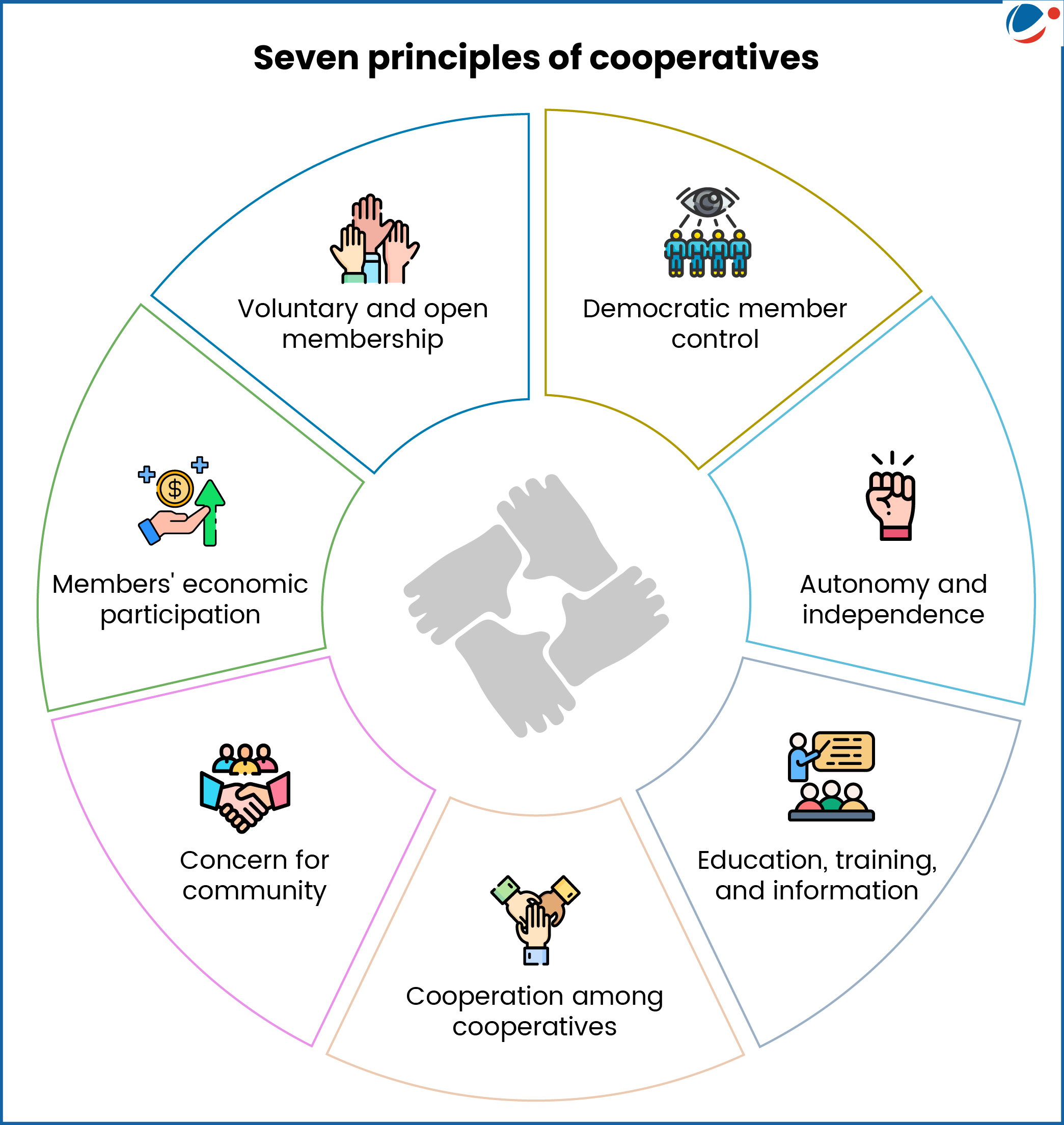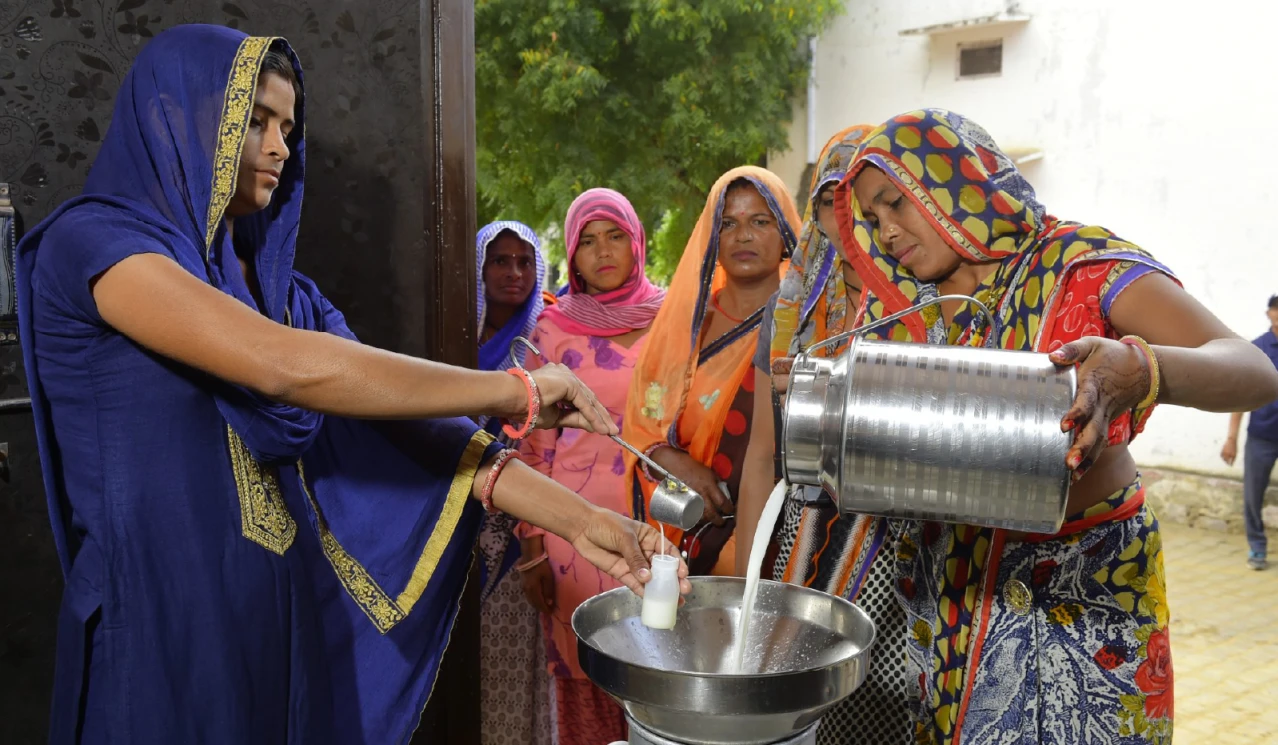Rankings were given in the World Cooperative Monitor 2025, produced by International Cooperative Alliance (ICA).
Cooperatives in India

- Meaning: It is an autonomous association of persons, united voluntarily to meet their common economic, social, and cultural needs through jointly owned and democratically member-controlled enterprise.
- Genesis: Cooperative Credit Societies Act, 1904.
- Constitutional Recognition: ‘Cooperative societies’ is a state subject under the Seventh Schedule.
- 97th Amendment Act, 2011 granted citizens the fundamental right to form cooperative societies and included Article 43B in the Directive Principles of State Policy.
- Above Amendment also inserted Part IXB containing Articles 243ZH to 243ZT to the Constitution. [However, Supreme Court in Union of India V. Rajendra N Shah (2021) held Part IXB to be operative only for Multi State Cooperative Societies and not for Single State ones].
- 97th Amendment Act, 2011 granted citizens the fundamental right to form cooperative societies and included Article 43B in the Directive Principles of State Policy.
- Legal Framework: Cooperative societies functioning in more than one state/UT are governed by Multi-State Cooperative Societies Act, 2002 (amended in 2023).
- While those in a single state are governed by the respective state/UT acts.
- Status: India has more than one-fourth of the world's cooperatives (over 8.44 lakhs).
- Top States: Maharashtra, Gujarat, Telangana, Madhya Pradesh, and Karnataka.
Key Initiatives to Strengthen Cooperatives in India
- Establishment of the National Cooperative Development Corporation (NCDC) in 1963.
- National Bank for Agriculture and Rural Development (NABARD) in 1982
- Establishment of the Ministry of Cooperation in 2021.
- National Cooperation Policy 2025.
Gujarat Cooperative Milk Marketing Federation Ltd or AMUL (HQ: Anand, Gujarat)
IFFCO or Indian Farmers Fertiliser Cooperative Limited (HQ: New Delhi)
|






